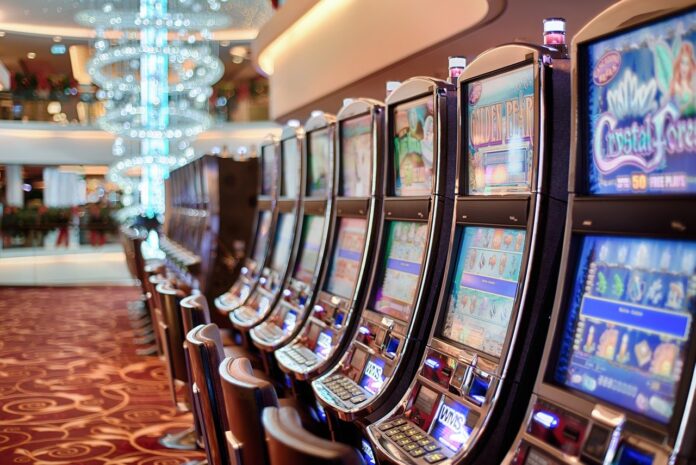Humanity has been in search of new entertainment methods for probably all of its history. Gambling has been a part of these methods for at least a few thousand years. While it really is one of the most enjoyable ways to spend your free time, it does pose some dangers. Gambling uses all sorts of mechanisms based on your psyche to get you hooked as quickly as possible.
It can’t be stressed enough how easy it is to get addicted to gambling. Once you get to that point, it’s a slippery slope with little hopes of getting out of the addiction hole. Most of the time, it requires long-term therapy, sometimes even in an enclosed facility. Gambling can be compared to drugs – the same neurotransmitters get released when you play. As far as the addictive potential goes, slot machines are definitely on top. They’re designed to play upon many reward mechanisms in our brains.
In fact, slots are the most popular game in a casino’s arsenal. That’s why major ones have even as much as 3000 machines, but only ten poker tables. But what do slot machines do that they’re so hooking?
Why is Gambling Addictive?
Gambling acts upon our reward system. When something pleasant occurs – things like sex, good food, or career success – our brains release dopamine. It’s the primary neurotransmitter that is responsible for making good things feel good. Some things, such as gambling stimulate the reward system far more than your regular, fun activities. That’s why it’s often compared to drug and alcohol addiction, as the mechanism is mostly the same.
Some people are much more vulnerable to gambling than others. That’s because they’re depressed, anxious, in pain, or mentally ill and use gambling’s dopamine rush as a coping mechanism. As you gamble more and more, regular activities become less and less pleasant. Furthermore, there’s a thing called tolerance. This means that as you prolong your gambling sessions, they, too, become less entertaining. That is, in short, the main mechanism of gambling addiction. Let’s move to slot machines and their characteristics.
“Skill”-based Slots
Some slot machines are filled with little mini-games. They offer you some bonus rounds where you’re totally in control. These games involve shooting at a target or reacting to something as quickly as possible. This creates the illusion that if you’re skilled, you can cheat the odds and get a profit. In reality, though, these skill-based mini-games only account for a small part of your winnings. Remember, the casino (kasyno online) always has the edge.
Near Wins
That’s a mechanism that most, if not all, slot machines use. It consists of making you think that you’ve missed the jackpot by just one symbol and that you must be close to hitting it. In fact, the spins are independent of one another and what you got doesn’t affect the next spin. This makes the players keep spinning for hours on end, thinking that they will hit the jackpot. When really, the chances are something like 1 in 15 million. Near wins make you believe just that – you must be near.
Losses Disguised as Wins
Perhaps the most powerful mechanism used by slot machines, Losses Disguised as Wins, creates the illusion of winning a prize. In reality, though, you don’t win anything. If you choose to bet $2 on a spin and win $1, then you lost $1. Slot machines are programmed this way because LDWs make you feel like you’ve won. Slots have lots of pay lines, so it’s possible to win less than you’ve bet. In fact, it’s one of the most common results of spinning the reel. Again, it acts on the reward system the same way as real wins.
Slot machines are relatively fast-paced most of the time. This is because they aim to confuse you so that you think you’ve won, while it was an LDW.
Visual and Audio Effects
While it may seem like the sound effects and lights’ main purpose is to make the game more entertaining, game developers have a different goal. These effects make your wins more pronounced and keep you focused on the machine.
The primary goal here is to make the LDWs indistinguishable from your regular win. It acts to confuse you further and make you feel like a winner. Another effect of the audio and lights is that players often get so focused that they completely forget about their surroundings.
Comps
Comps are another way of making you gamble more. They’re a complimentary reward for playing casino games. Because you get more comps the longer you play, this leads to the false conviction that you could make a profit off of them if you play for long enough. This is entirely an illusion that aims to lure you into playing more. The comp rates are most often 10% to 40% of what you’re supposed to lose. For example, if you’re playing slots with 10% casino edge, if you put in $100 per hour, you’re expected to come out with $90. If the comp rates are at 20%, then you get back $2, making your budget $92.
As you can see, the rates are pretty low and base upon the house edge. They’re always lower than the casino edge.







